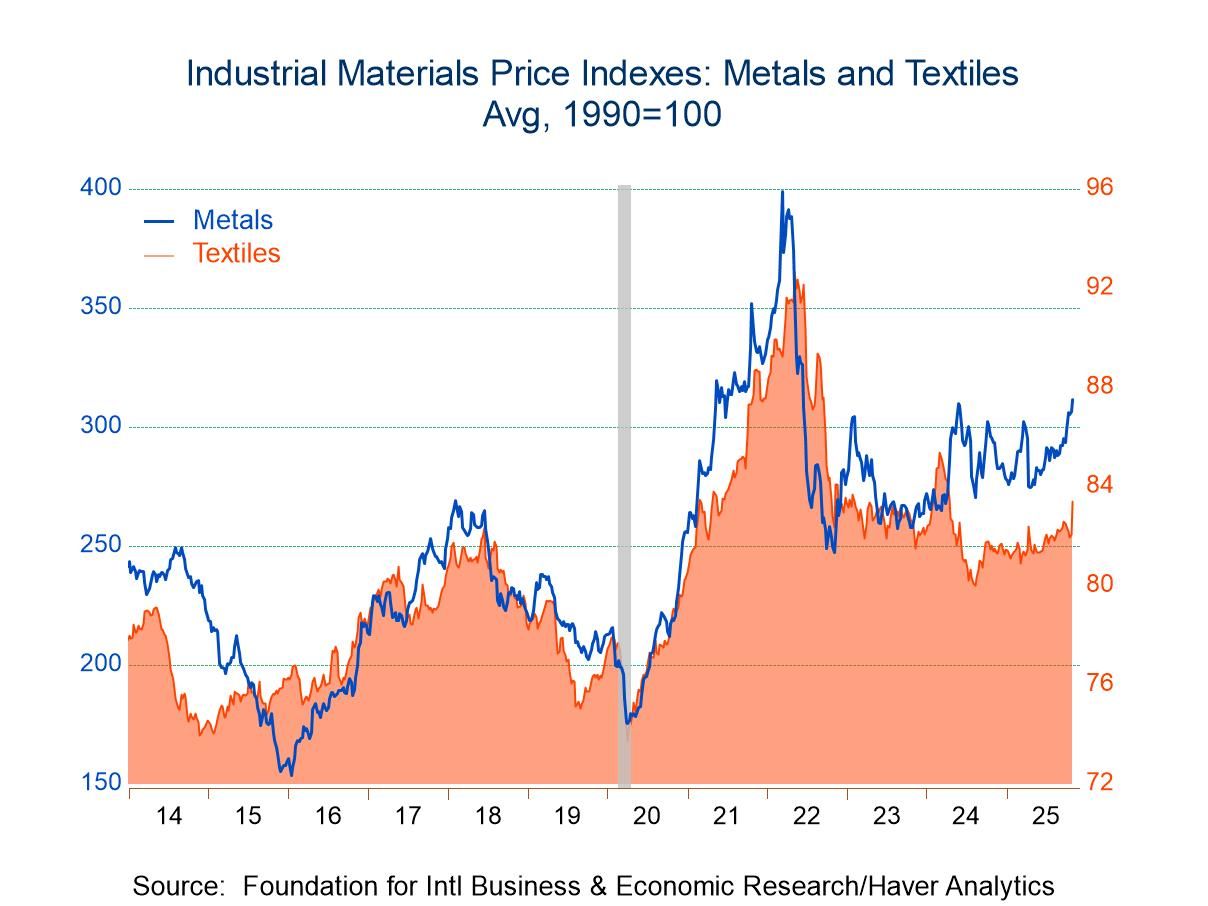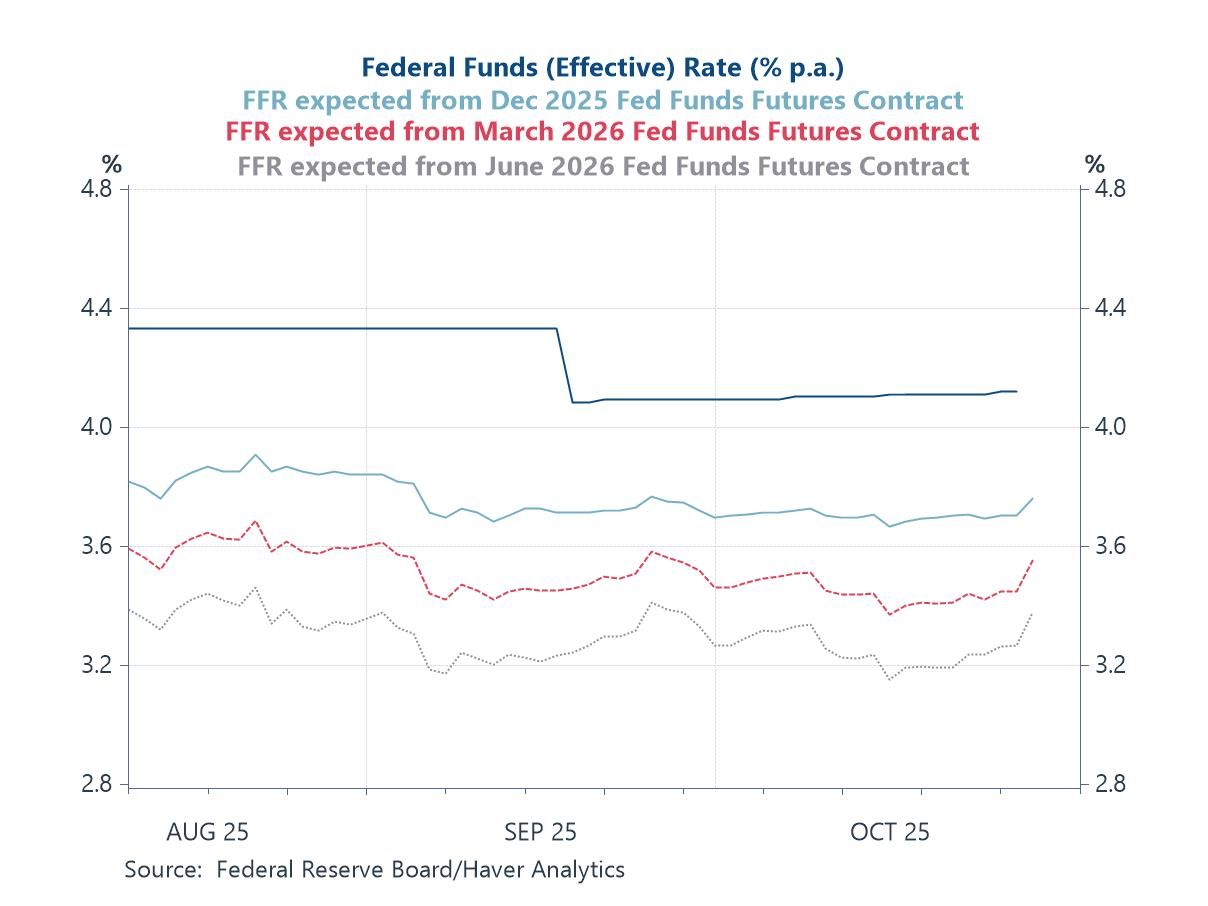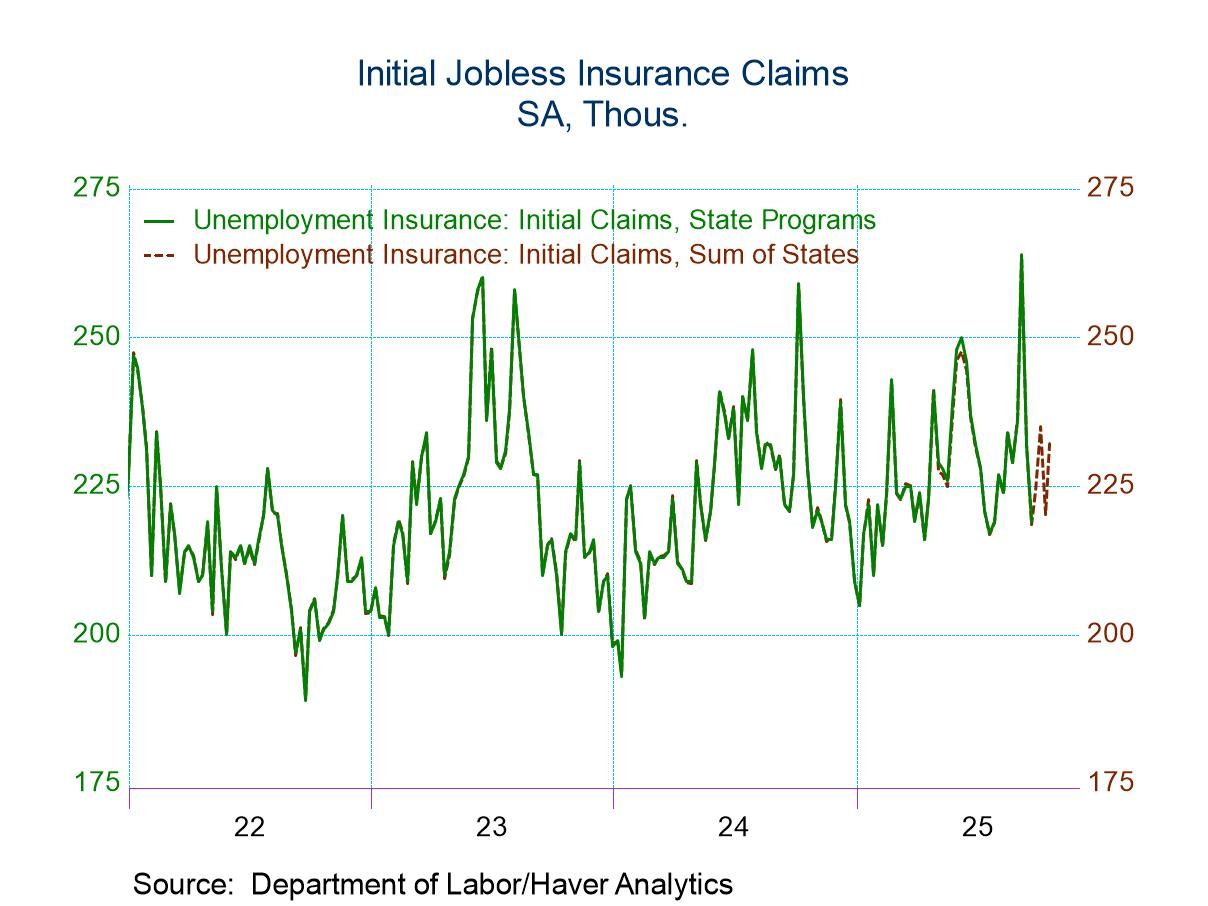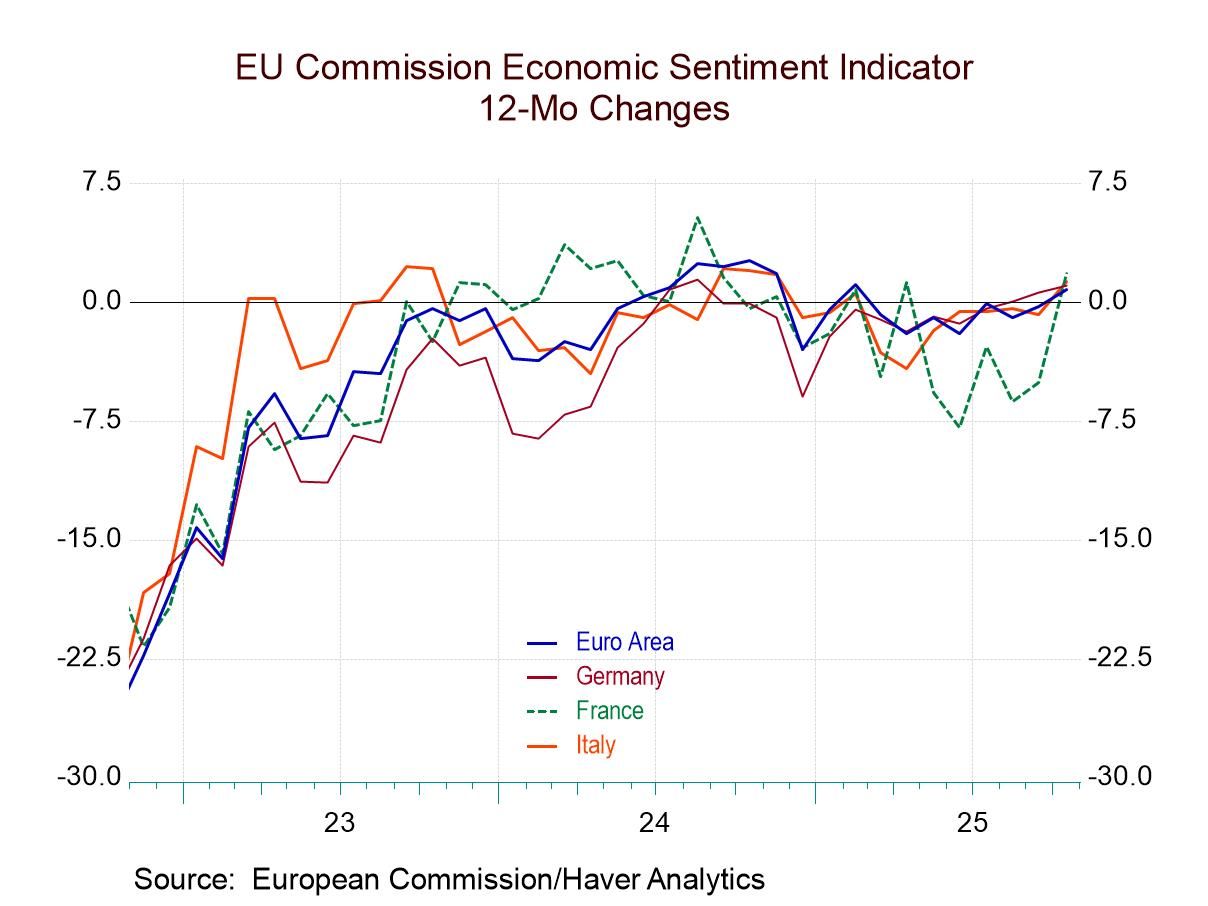 Global| Mar 24 2008
Global| Mar 24 2008Chicago Fed Index So Low Perhaps Indicates Recession
by:Tom Moeller
|in:Economy in Brief
Summary
The February National Activity Index (CFNAI) published by the Chicago Federal Reserve fell to its lowest level since April of 2003. At a negative 1.04 following downwardly revised readings in January and December '07 the latest figure [...]
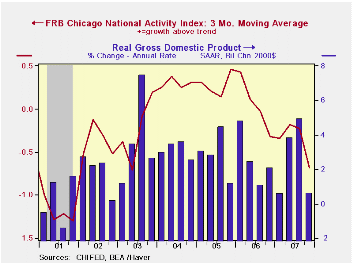
The February National Activity Index (CFNAI) published by the Chicago Federal Reserve fell to its lowest level since April of 2003. At a negative 1.04 following downwardly revised readings in January and December '07 the latest figure lowered the three month moving average to -0.87, its lowest level since 1Q03. That low reading 2003 was then associated with real GDP growth of 0.20% in 4Q02 and of 1.20% in 1Q03.
The Chicago Fed's release indicated "an increasing likelihood that a recession has begun." A zero value of the CFNAI indicates that the economy is expanding at its historical trend rate of growth of roughly 3%. During the last twenty years there has been a 68% correlation between the level of the CFNAI and q/q growth in real GDP.
The complete CFNAI report is available here and the historical data are available in Haver's Surveys database.
During February, each of the four broad categories of indicators — employment, production, consumption and housing — continued to make negative contributions to the CFNAI.
The CFNAI is a weighted average of 85 indicators of economic activity. The indicators reflect activity in the following categories: production & income, the labor market, personal consumption & housing, manufacturing & trade sales, and inventories & orders.
Economic Outlook Symposium: Summary of 2007 results and forecasts for 2008 from the Federal Reserve Bank of Chicago can be found here.
| Chicago Fed | February | January | February '07 | 2007 | 2006 | 2005 |
|---|---|---|---|---|---|---|
| CFNAI | -1.04 | -0.68 | -0.28 | -0.44 | 0.01 | 0.28 |
Tom Moeller
AuthorMore in Author Profile »Prior to joining Haver Analytics in 2000, Mr. Moeller worked as the Economist at Chancellor Capital Management from 1985 to 1999. There, he developed comprehensive economic forecasts and interpreted economic data for equity and fixed income portfolio managers. Also at Chancellor, Mr. Moeller worked as an equity analyst and was responsible for researching and rating companies in the economically sensitive automobile and housing industries for investment in Chancellor’s equity portfolio. Prior to joining Chancellor, Mr. Moeller was an Economist at Citibank from 1979 to 1984. He also analyzed pricing behavior in the metals industry for the Council on Wage and Price Stability in Washington, D.C. In 1999, Mr. Moeller received the award for most accurate forecast from the Forecasters' Club of New York. From 1990 to 1992 he was President of the New York Association for Business Economists. Mr. Moeller earned an M.B.A. in Finance from Fordham University, where he graduated in 1987. He holds a Bachelor of Arts in Economics from George Washington University.



